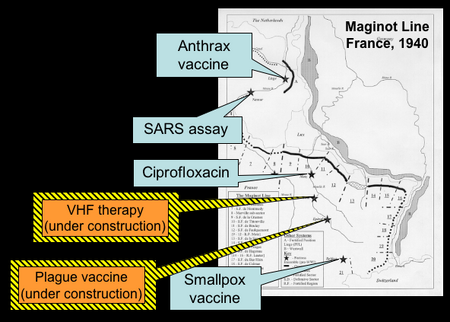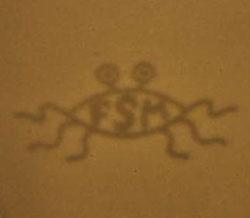Synthetic Society
Note: You do *not* need permission to edit these pages; if you have something constructive to add or change, go for it!
Overview
The Synthetic Society Working Group (SSWG) is a group of individuals who are working to directly address societal issues embedded and surrounding the emerging field of synthetic biology. Everybody is welcome to participate either via contributions to the pages hosted on this wiki, by visiting Boston for a meeting, or by arranging a local workshop elsewhere. At MIT, participants include scientists and engineers engaged in synthetic biology research, scholars expert in considering societal issues associated with emerging technologies, community leaders, and interested individuals. One goal of the SSWG is to make unbiased progress on the issues. Another goal is to collect and organize resources in order to facilitate widespread understanding and consideration of the issues.
Upcoming Meetings
Upcoming Events
- Online SYNBIOSAFE e-conference on the societal aspects of synthetic biology, Monday 5 May to Tuesday 3 June 2008. The issues we would like to discuss fall under the following areas: ethical aspects, biosafety challenges, biosecurity awareness, Intellectual Property Rights, regulation and governance, and public perception, communication and the media. For more information on these thematic areas, specific questions to be discussed, and how to post a contribution, please have a look at the e-conference background paper.
Past Meetings
SBWG lunch September 26, 2007 - Paul Oldham about SB IP issues
SBWG lunch September 5, 2007 - Ken Oye and Rachel Wellhausen will lead a discussion on the Intellectual Commons and Property Rights
SBWG lunch June 13, 2007
SBWG lunch June 6, 2007
2006 iGEM Jamboree (MIT, November 4-5, 2006)
Synthetic Biology 2.0
May 20-22, 2006 (Berkeley, CA)
Day 3 of this conference is devoted to societal issues
Security Town Hall, with Steven Mauer of Berkeley
Friday, 21 April, 5-7p, see webcast
MIT 32-D463
PoET Meeting
Wednesday 1 February 2006
Full Meeting
Wednesday 25 January 2006
3-5p
Planning Meeting
Thursday 5 January 2006
3:30-5:30p
MIT 68-574
One person's meeting notes
Background
What is synthetic biology?
The limited, working definition of synthetic biology that we are using in our discussions is (i) the design and construction of new biological parts, devices, and systems and (ii) the re-design of existing, natural biological systems for useful purposes. That is, we are now primarily interested in considering the impact of new, engineered biological systems that are encoded via standard four-base DNA (that is, A, T, C, G). This "definition" leaves out certain aspects of synthetic biology research (for example, understanding the origins of life by re-creating a cell from raw chemicals in the lab). Two reasons encourage us to use of a focused definition. First, we believe that the direct engineering of living systems via standard DNA will have the widest societal impact over the near term. Second, we are likely already at risk of trying to do too much.
What issues are you considering?
We are considering four classes of issues: (i) Biological Risks and Security, (ii) Understanding and Perception, (iii) Ownership, Sharing, and Innovation, and (iv) Community Organization and Culture. Each of these issues is introduced in detail below. If there's an additional class that you think should be considered please let us know.
What approach are you taking?
- Identifying the questions & issues
- Identifying and describing points of uncertainty
- Empirics and relation to past experience (anchoring speculation via history)
Are we taking benefits and applications for granted? Should this be an additional topic?
What's reality? What can be done today?
ETC Group's introduction to synthetic biology
[editorial note: the sections below should likely move to their own independent pages as soon as we start making real progress]
Biological Risks and Security
See the Biological Risks & Security page.

Place holder questions
- How could synthetic biology make the biological risk & security landscape worse?
- How could synthetic biology make the biological risk & security landscape better?
- What are biological risks and why do they exist?
- Can humans engineer pathogens that are more dangerous than those found in nature?
- Is there a useful list of "top 100" biological risks or do such lists themselves pose a dangerous distraction from recognizing a dynamic, agile threat landscape?
- Is biological safety possible?
- should pathogen research be conducted in secret?
- Can defensive pathogen research be successfully conducted in secret?
- Should synthetic biology researchers be subject to government background checks?
- Can one country successfully implement a biological security program in isolation?
- Should biological security measures be open or closed? Centralized or distributed?
Background Materials
- Biotechnology Research in an Age of Terrorism, NAS report.
- Seeking Security: Pathogens, Open Access, and Genome Databases, NAS report.
- Recipe for Destruction, NY Times editorial authored by Ray Kurzweil and Bill Joy.
- [Note, there are other relevant NAS reports, not all of which may be out yet. We should come back and look for more].
- Our Uncertain Future: Biosecurity & Globalization of the Life Sciences (pending NAS report)
- Strategy for Biological Risk and Security, 2003 working paper by Drew Endy.
- DNA for Peace Report U Toronto Joint Centre for Bioethics
Point of Contact
Rocco Casagrande
Drew Endy
Alex Mallet
Gautam Mukunda
11a Monday 9 January 68-580 or thereabouts
Synthetic Society/Understanding, Perception & Ethics
For more information, see this page on Understanding, Perception & Ethics

Place holder issues (collected/presented by Laurie Zoloth)
- DNA as the really real self.
- Dignity is intactness of the being.
- Nature is fixed.
- Nature is normative.
- Suffering is what defines the human condition.
- Slopes are slippery.
- Dual-use is inevitable.
- Mistakes are inevitable.
- We will be as gods.
- The marketplace will distort science.
- An unfair world (inequity).
- A 'Synthetic' world(i.e., couldn't you have named the field "shiny happy" biology?).
- What's actually possible? What's going to happen? Material issues...
Background Materials
- The Perception of Risk by Paul Slovic
- Impure Science by Steven Epstein
- Others, TBD
Point of Contact
Scott Mohr
Barry Canton
Frank Field
Natalie Kuldell
Austin Che
Larry McCray
Meagan Lizarazo
Julie Norville
3p Monday 9 January (Austin will reserve room and send email)
I've reserved 32-397 from 3-5. --Austin 17:49, 5 January 2006 (EST)
Ownership, Sharing, and Innovation
See the Ownership, sharing and innovation page.
http://www.claybennett.com/images/archivetoons/patent_pending.jpg
Place holder questions
- Programming in DNA will require a library of basic biological functions that can be used over and over again in combination.
- Who is going to make such libraries? [Can it be made?]
- Who is going to own such libraries? [Will anybody?]
- DNA synthesis lets you convert genetic information into genetic material.
- How cheap will gene/genome synthesis become?
- Will anybody pay attention to material transfer agreements for DNA?
- Can copyright be still further munged so that it applies to DNA?
- Will/do existing and future patents restrict progress in synthetic biology?
- What alternative strategies might better promote collaboration but still reward investors to fund the expensive research and development required to bring biotechnologies to market (ie clinical testing of novel biological therapeutics)?
- How do ownership terms impact perception and public acceptance of biological technologies?
- Something that is hard today (for example, designing a protein) will become easier tomorrow. How to best incentivize such work?
- Something that is hard to do once (for example, designing the first copy of a synthetic protein) is easy to reproduce...
- More TBD.
Background Materials
- Drew Endy's talk at OSCON 2005
- Meeting notes from Nov 2005 SynBio conference at Duke Law's Center for Study of the Public Domain [available, email endy@mit.edu]
- Innovation & Incentives by Suzanne Scotchmer.
- Notes & FAQ from the pre-historic days of the BioBricks Foundation.
- Arti Rai and James Boyle article on legal status of Synthetic Biology [draft pending, email endy@mit.edu]
Point of Contact
Ken Oye
Reshma Shetty
Frank Field
Sriram Kosuri
Jason Kelly
Gautam Mukunda
2p Friday E38 6 January
Community Organization and Culture
See the Community Organization and Culture page.
http://www.loc.gov/rr/scitech/SciRefGuides/images/engineeringsociety.jpg
3rd annual meeting of the American Society of Civil Engineers, 1855
Place holder questions
- Are there any actions or standards of practice (celebratory, proscriptive, or restrictive) that should be coordinated on a community-wide basis?
- If yes, would such actions benefit from (require?) one or more forms of community organization?
Background Materials
- TBD
Point of Contact
Sophia Roosth
Sri Kosuri
Reshma Shetty
Larry McCray
Austin Che
11a 9 January (location TBD)
I've reserved 32-397 from 11-1. I may not be able to make this time or may be late. --Austin 17:49, 5 January 2006 (EST)